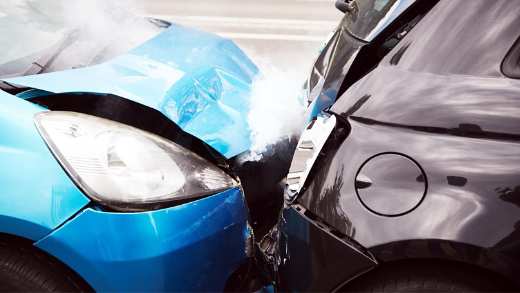Car insurance is a legal requirement in the UK, but it’s important to consider what level of protection is right for you.
What are the different types of car insurance covers?
Third party, third party fire and theft, and comprehensive are the three standard options generally available across the industry. But whatever you choose, make sure you have the right amount of cover for your needs.
If you need to make a claim, you don't want added worries at what could already be a difficult time.
Third party
Third party is the minimum amount of car insurance required by law. It covers your liability for any injury or damage caused to other people or their property, but not the cost of repairs to your vehicle.
Although prices vary depending on the insurer, these policies aren’t necessarily cheaper.
Third party, fire and theft
You’re protected for third party costs and repairs to, or replacement of, your vehicle because of fire, theft or attempted theft. These policies give you added protection, but still won’t pay out for accidental damage if you’re at fault.
Comprehensive
Comprehensive car insurance is the greatest level of protection available and covers third party costs and damage to your vehicle even if you caused the incident.
Third party versus fully comprehensive
Drive a new or expensive car? Then a third party policy may not be for you. If you’re involved in a collision that’s your fault, you could be looking at a sizeable bill if your own vehicle’s damaged. And you won’t be covered if your car is stolen.
On the flip side, if you can pay for – or carry out – any repairs yourself, or buy a new vehicle, third party cover might be an option worth considering.
For many people, it’s worth paying a higher premium for a fully comprehensive policy for the peace of mind that comes with more protection.
However, don’t assume comprehensive is more expensive than third party policies as prices will depend on your car and your provider. It’s worth checking all your options before deciding.
Optional extras to suit your needs
Aviva customers can choose from a range of optional extras to boost their car cover.
UK breakdown cover
This provides extra protection for your car, regardless of who's driving if it breaks down. There are four levels of cover.
Protect your no claim discount
Your price won’t go up as a direct result of making one claim.
Courtesy car
You can only pair this with our comprehensive insurance.
Motor injury protection plus
This offers financial peace of mind if you, your partner or a named driver is seriously injured or dies in an accident while in the insured car. You’ll need to have comprehensive cover to add this.
Foreign use
Comprehensive cover for when you’re driving abroad. You can only add this upgrade on a comprehensive insurance policy.
Motor legal services
Expert legal support for you and your named drivers. If you have an accident, we also support any passengers who were in the car at the time.
Not all insurers offer the same cover
Even if you’re comparing the same level of cover from different insurers, check what each one provides. Not all offer the same standard elements, for instance uninsured driver protection, replacement locks and child seat cover.
Also, don’t assume the most expensive policy is the best or the cheapest is the worst. You’ll find a range of different prices for insurance policies, so check what’s covered as standard and which optional extras you might want to add.

